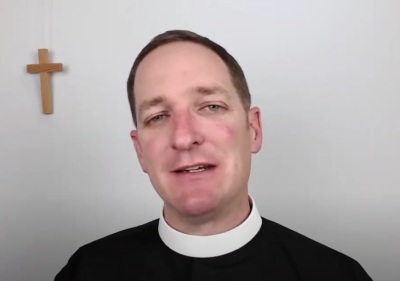
An Episcopal Church court has sided with a Virginia priest who was disciplined for engaging in a “Eucharistic fast” in protest against white supremacist racism.
The Rev. B. Cayce Ramey had been disciplined by the Episcopal Diocese of Virginia for his refusal to administer holy communion during worship services due to his belief that the denomination needed to better embrace racial justice.
The Court of Review for the Episcopal Church announced last week that it ruled 10-6 in favor of Ramey, believing that the earlier Hearing Panel made multiple errors in their decision.
This included when they “found Ramey accountable for Offenses without affording Ramey his procedural rights,” which included providing “the formal statement of the charges against him and the right to present evidence disputing the charges or their materiality.”
The decision also rejected the Hearing Panel’s conclusion that Ramey violated his ordination vows by undertaking the fast, noting that his bishop never gave him a “pastoral direction,” which would involve clarifying that Ramey had to celebrate the Eucharist.

“Ramey went to the Bishop and stated his intentions. At that time, Ramey was not given a Pastoral Direction,” continued the Court of Review majority. “It is doubtless true that many clergy who are ill, infirm, or retired cease presiding at the Holy Communion — sometimes permanently — yet they remain clergy in good standing in our Church.”
“We are deeply concerned by the use of a disciplinary case to impose a standard for minimum celebration of the Eucharist that is not legislated by canon, that has not been considered by the General Convention, and that might in practice subject retired and nonparochial clergy to the risk of discipline.”
The 10-member majority noted that their decision “does not reflect an endorsement of Ramey’s actions or his theological views,” believing that he has “in good faith” decided that “receiving the sacrament would place him at greater spiritual risk.”
In an opinion that dissented in part, six members of the Court of Review believed that there was “significant and conclusive evidence of Ramey’s failure to uphold the promises and vows made at his ordination.”
“In addition to dismissing and disrespecting the leadership of his bishop, Ramey failed to provide the sacraments of the New Covenant, specifically Holy Communion, to his congregation,” the minority opinion added.
“Regardless of whether he arranged for other clergy to celebrate the Eucharist in his absence, he nonetheless violated the solemn oath taken at his ordination to the priesthood.”
The dissenting opinion concluded that the absence of a pastoral direction issued by the bishop did not negate “the express covenant made between God, himself, and the faith community.”
Regarding the decision, Virginia Bishop Mark Stevenson issued a statement that while he agreed with Ramey’s goal to combat racism, he disagreed with his methods.
“Confronting racism remains mission critical for me and for the Diocese of Virginia. Each of us must work to secure justice and human dignity and I welcome every member of the Diocese, including Dr. Ramey, to join together in this holy and life-giving work,” stated Stevenson.
“But it is clear to me that Dr. Ramey’s actions, however well-intentioned, have harmed his congregation, the Diocese, and our shared efforts at racial reconciliation and healing. It is my obligation as Bishop to seek to remedy that harm moving forward, and I will work diligently to do so.”
Ordained in 2012, Ramey was serving as rector of All Saints Episcopal Church in Alexandria when he began a “Eucharistic fast” due to his belief that the denomination needed to do more to combat white supremacy.
Ramey began the fast in June 2021, which included neither receiving nor providing communion. His congregation was connected to three other local churches, which meant that members of his church were not deprived of the sacrament.
By the fall of that year, members of Ramey’s congregation expressed concern about the fast to then-Virginia Bishop Susan Goff, who met with Ramey about the issue in January 2022.
Following a sabbatical that ended in October 2022, Ramey decided to continue his fast and to step down as rector at All Saints, though he refused to renounce his priestly orders.
“I believe that the white church knows our siblings have something against us, so we must act,” Ramey said in a February 2023 letter, as reported by Episcopal News Service.
“I believe we can find repentance and reconciliation through the justice and mercy of God if we prioritize our relationship with our [black, indigenous, people of color] siblings.”
In comments given to ENS, Ramey denied that he was forsaking his clergy duties by undertaking the fast, saying that “I have never felt more clearly, more firmly grounded in my sacramental leadership as a priest as I do now.”
“I have not walked away from the Holy Eucharist. This is a fast called into by the Holy Spirit in conviction — and to be called out of by the Holy Spirit in conviction,” he added.















